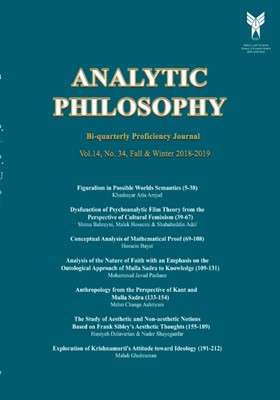Conceptual Analysis of Mathematical Proof
Subject Areas : Philosophy
Keywords: : Argument, Correctness, Consensus, Persuasive Effect, Institutional Legitimacy, Rigour, Surveyability,
Abstract :
What are the common attributes of the mathematical proofs? Various answers to this question have been provided: Some deny any conceptual commonness among proofs, while others accept the conceptual duality or multiplicity of mathematical proofs. They believe that “the mathematical proof” refers to two or more distinct concepts sharing the "same name". This paper shows that, first, the mathematical and non-mathematical proofs are instances of a vague and single concept: the successful or correct reasoning. And second, in all mathematical proofs and their definitions, an argument pattern must meet three conditions: being rigour, surveyable, and reliable in all possible words. If the first two conditions are met, the mentioned argument can be characterized as "mathematical"; and if the third condition is satisfied, that argument can be characterized as "correct". So four conceptual components, in all mathematical proofs and their definitions, are common: argument, being rigour, surveyability, and correctness. Thirdly, all disagreements about the concept of mathematical proof are due to different interpretations of each of the four aforementioned components. That is, several philosophers and mathematicians have proposed different interpretations of each of the four basic components of the mathematical proof.
_||_

